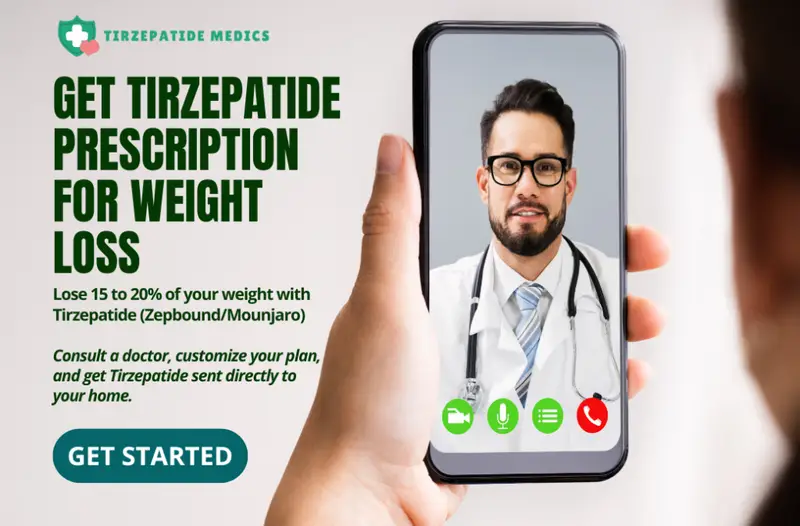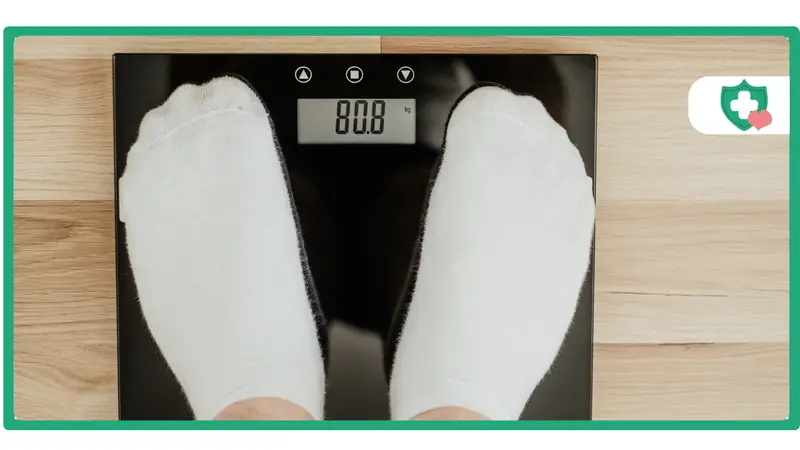When you think about taking a new medicine, it’s very smart to ask about safety. Knowing if a medicine is not right for you is just as important as knowing all the good things it can do.
You are likely reading this because you want to know, “Who should not take Mounjaro?” This guide is designed to give you a very clear and simple list of who should avoid this medicine.
We will cover the definite “do not take” situations and the “be extra careful” situations. This will help you have a safe and smart talk with your doctor.
What is Mounjaro (Tirzepatide)?
First, let’s do a quick review. Mounjaro is a powerful medicine. The active ingredient that makes it work is called Tirzepatide. This medicine helps people with their blood sugar and with weight loss.
It is very important to remember that Mounjaro is a prescription medicine. This means only a doctor can decide if it is safe for you.
This medical review is a key part of any safe and medically supervised Tirzepatide treatment plan. Your safety always comes first.
The “Do Not Take” List
Let’s get right to the most important part. This section is about the situations where you absolutely should not take Mounjaro. These rules are here to keep you safe.
A Specific Thyroid Cancer Risk
The FDA, which is in charge of medicine safety, sometimes puts a “black box warning” on a medicine. This is the most serious type of warning they can give. Mounjaro has one.
Here is what the warning means in simple terms: In studies with lab animals, the ingredient in Mounjaro caused a specific type of thyroid tumor. It is not known if this happens in people.
Because of this risk, the rule is very clear. You should not take Mounjaro if you or anyone in your family has ever had a type of thyroid cancer called Medullary Thyroid Carcinoma (MTC). You also should not take it if you have a rare condition called Multiple Endocrine Neoplasia syndrome type 2 (MEN 2).
A History of Severe Allergic Reaction
This rule is very straightforward. If you have ever had a serious allergic reaction to Tirzepatide or any of the other ingredients in Mounjaro, you cannot take it.
A serious allergic reaction would be something like swelling in your face, lips, or throat, or having a hard time breathing. If this has ever happened to you with this medicine, you cannot use it again.
When You and Your Doctor Must Be Extra Careful
Now, let’s talk about situations where Mounjaro isn’t forbidden, but you need to be very, very careful. In these cases, you and your doctor must have a serious talk about the risks.
If You Have a History of Pancreatitis
Pancreatitis is a very painful condition where your pancreas, an organ in your belly, gets inflamed. If you have ever had pancreatitis before, your doctor needs to be extra cautious before prescribing Mounjaro.
If You Are Pregnant, Planning Pregnancy, or Breastfeeding
This is very important. Mounjaro has not been studied in women who are pregnant or breastfeeding. Because we don’t know if it’s safe for the baby, it should not be used if you are pregnant, trying to get pregnant, or breastfeeding.
If You Have Severe Stomach Problems
Mounjaro works by slowing down how quickly your stomach empties. If you already have a severe stomach problem, like a condition called gastroparesis, Mounjaro could make it worse.
If You Have a History of Kidney Problems
The main risk to kidneys with Mounjaro is from getting very dehydrated if you are sick with vomiting or diarrhea. If you already have kidney problems, your kidneys might be more sensitive to dehydration. Your doctor must know about your kidney health history.
If You Have Diabetic Retinopathy
Diabetic retinopathy is an eye problem related to diabetes. Sometimes, when blood sugar levels change quickly, this eye condition can get a little worse before it gets better. If you have this condition, you will need to work closely with your eye doctor while taking Mounjaro.
Why a Doctor’s Evaluation is Essential
As you can see, there is a lot to consider. This is why you should never take a prescription medicine like Mounjaro without a doctor’s help. A doctor’s main job is to keep you safe.
They will review this exact list of warnings and compare it to your personal health history. A thorough medical screening is the only way to truly answer the question, “Who should not take Mounjaro?” for any single person. Your health is unique, and your care should be too.
A Note on Finding a Safe Medical Partner
At Tirzepatide Medics, we put your safety first. A safe online prescription process involves a careful review of your health history by a licensed provider. We offer a secure and professional way to get your Tirzepatide prescription, the powerful ingredient in Mounjaro and Zepbound that helps patients lose an average of 20% of their body weight.
Our plan, which includes your prescription and medication, starts at $399 for the first month and $299/month after). Begin your journey with a team that prioritizes your safety by starting at our patient portal.
Frequently Asked Questions (FAQ)
Does the dose matter for these warnings?
That’s a great question. The answer is no. These warnings and contraindications apply to all doses of Mounjaro, from the smallest to the largest. Your doctor will use a “start low, go slow” method for safety, which you can learn about with a Tirzepatide dose calculator, but the “do not take” rules stay the same no matter the dose.
What about interactions with other medicines?
This is another very important safety question. You must tell your doctor about every single medicine you take. This includes other prescription drugs, over-the-counter medicines, vitamins, and supplements. Your doctor needs the full list to check for any unsafe combinations.
So, is Mounjaro dangerous?
For the people who have the health conditions on the “do not take” list, it can be very dangerous. That is why these rules are so strict. For people who do not have these conditions, Mounjaro is considered safe and effective when it is used correctly under a doctor’s care.
Conclusion
We’ve covered a lot of important safety information. The main takeaway is that Mounjaro is a very helpful medicine, but it is not the right choice for everyone. Your safety is always the number one priority.
Remember the most important rules. The biggest ones involve a personal or family history of a specific type of thyroid cancer and having a serious allergy to the drug.
So, who should not take Mounjaro? The answer is clear: anyone with the specific thyroid cancer history or a drug allergy. For everyone else, the only way to know for sure if it’s safe for you is to have a careful and honest conversation with a doctor.
To discuss your personal health history and see if a treatment is right for you, you should always contact a healthcare provider.
















